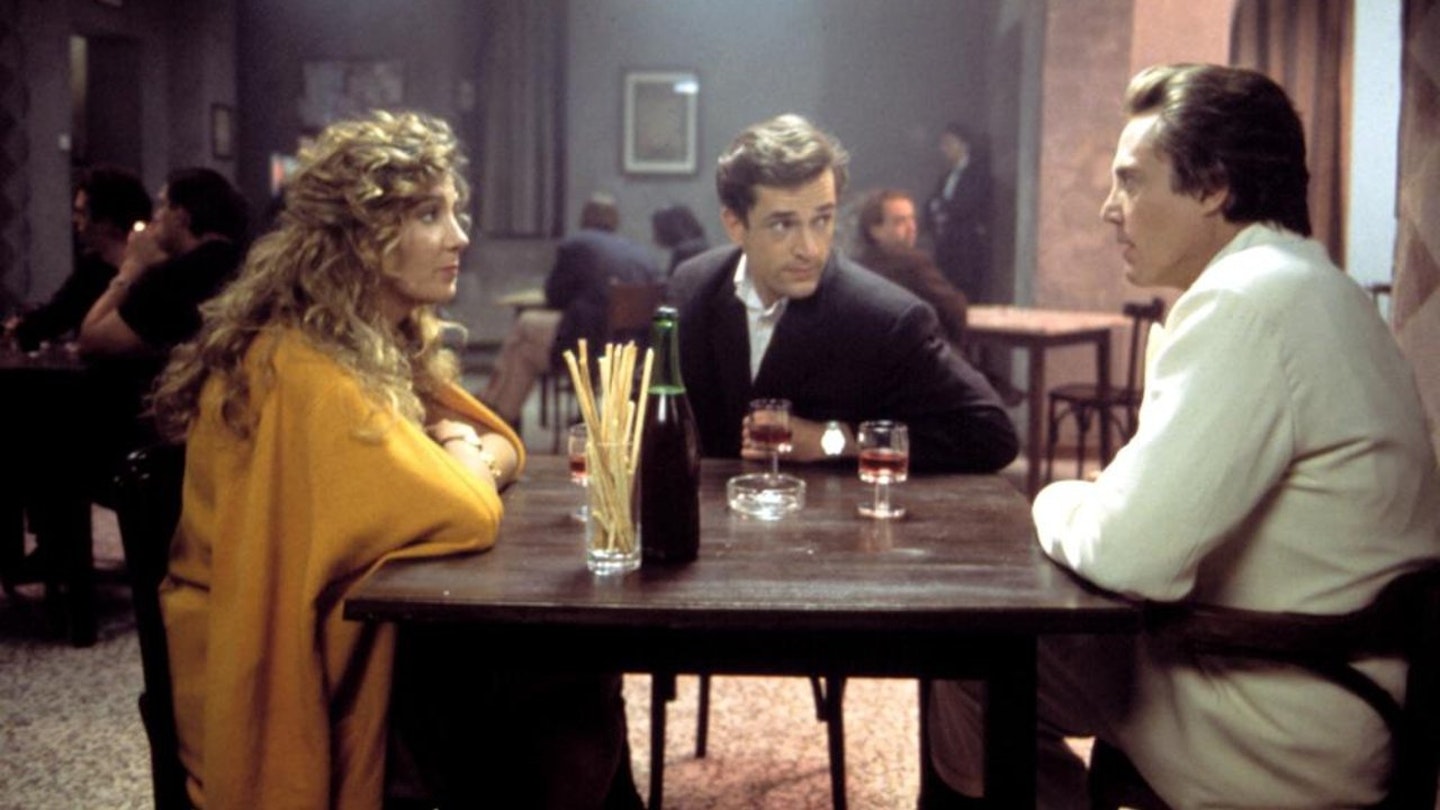The pedigree on show here is without question, the icy, macabre storytelling grace of Ian McKewan as adapted with the crisp, loquacious dialogue of Harold Pinter and directed with Paul Schrader’s gloomy ruminations on human frailty. Place them in the murky underbelly of Venice’s backstreets, a nightmare milieu forever echoing with the distraught clamour of Don’t Look Now, and you can lay claim to a provocative, if pretentious, sub-horror movie.
Shot by famed cinematographer Dante Spinotti, who gives the film a seeping, feverish texture, a gothic atmosphere of creeping abhorrence, Schrader hones, with his familiar snail’s pace approach to plot, in on an effective erotic strangeness where this dissolving English couple, played with a due mix of yearning and restraint by Natasha Richardson and Rupert Everett, are lured into a Venetian aristo’s warped relationship with his wife Caroline. And if you’re looking for a sexual deviancy hovering just out of reach, then coupling the oddball phraseology of Christopher Walken with the cool intelligence of Helen Mirren is the best place to start.
The encounter, rapt with potential risk, re-enflames the carnal desires in this shuttered couple, with its peculiar voyeurism, malevolence and elusive purpose. Why do Walken’s Robert and Mirren’s Caroline steal their guests’ clothes having put them up for the night? To what awful use are they ultimately being put? This is all the stuff of payoff, but this being the work of Paul Schrader, who would rather concern himself with religious symbolism and the tracer-fire of evil, the outcome is unsure and incomplete.
Frustratingly so, as if atmosphere, and it fair drips from every twisting corner and forgotten square, will suffice. Evidently Robert is up to no good, Walken is pulling out all the stops on his creepzoid persona, an endless almost ludicrous flutter of tics, but his performance kind of sums the film up — it’s all furtive gesture and little gripping plot.
